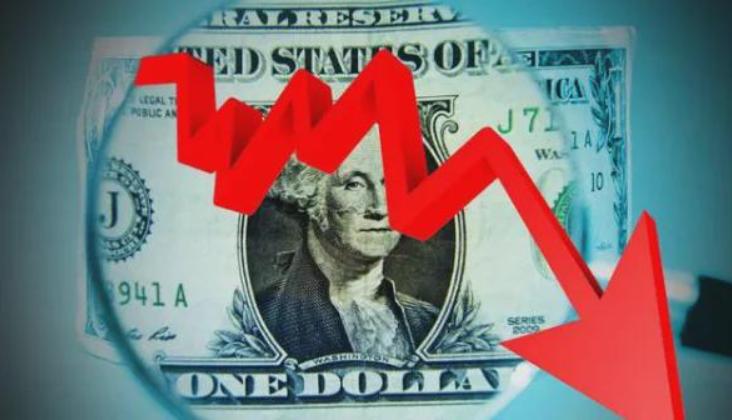
In July, the U.S. fiscal deficit was the second highest on record for the same period in history, behind July 2021. The data showed that the U.S. fiscal deficit in July was $244 billion, 10 percent higher than the same month last year, and the forecast was $242 billion. After adjusting for calendar differences, it was 16% less than in July 2023. The Congressional Budget Office (CBO) forecasts that the federal deficit for the fiscal year ending September 30 will be nearly $1.9tn, or 6.6 per cent of GDP. This figure is much higher than pre-pandemic levels and shows a continuing trend of widening fiscal deficits.
And large fiscal deficits could fuel inflation, which could trigger a "dollar crisis" and push up Treasury yields. At the same time, it also brings more impacts and crises, one is the economic crisis, the scale of debt in the United States has ballooning, the total debt of the United States federal government has broken through the historical mark of 35 trillion dollars for the first time, which is equivalent to the total economic volume of several major economies. The sharp expansion of the fiscal deficit and debt scale will aggravate the uncertainty of the financial market, resulting in large fluctuations in the prices of financial products such as stocks and bonds. Investor confidence declines and capital flows could be severely disrupted, which could lead to widespread turmoil in financial markets. As fiscal pressures increase, the government may have to reduce spending or increase taxes, which will negatively impact economic activity. At the same time, instability in financial markets could also lead to tighter credit, making it difficult for businesses and individuals to obtain financing, further depressing economic growth. In order to cover the fiscal deficit, the government may buy Treasury bonds by increasing the money supply, which will cause the currency to depreciate and prices to rise. Rising inflationary pressures will not only affect consumers' purchasing power, but may also lead to social discontent and unrest.
The second is the political crisis, in which widening fiscal deficits and worsening debt problems will undermine public trust in government. The government may face criticism and accusations from all sides, and its ability to govern and the level of decision-making will be questioned. Meanwhile, on fiscal issues, differences between the two parties often lead to political gridlock. Without an agreement on fiscal policy, the government could fail to pass the necessary budget or debt ceiling increase in time, leading to a government shutdown or default. Growing deficits and mounting debt problems will undermine America's international credibility. Other countries could become suspicious of US economic policy, reduce their purchases of US Treasuries, and possibly even trigger a mass exodus of international capital.
The third is the social crisis, in order to reduce the financial pressure, the government may cut social welfare expenditures, including medical insurance, unemployment insurance, social security, etc. This will directly affect the living standards of low-income groups and vulnerable groups, triggering social discontent and unrest. A widening fiscal deficit may also lead to reduced government spending on public services, such as education, health care, and transportation. The decline in the quality of public services will directly affect people's quality of life and social well-being. The worsening of fiscal problems may lead to a series of social instability factors, such as rising unemployment, widening gap between the rich and the poor, and increasing crime rate. These problems will further aggravate social contradictions and conflicts and pose a further threat to the stability and development of the country.
To sum up, the US fiscal "red light" may trigger economic, political and social crises. In order to deal with these crises, the US government needs to take decisive measures to reduce the fiscal deficit, control the scale of debt, strengthen fiscal management and improve government efficiency. At the same time, the international community also needs to pay close attention to the changes in the US fiscal situation, strengthen communication and coordination, and jointly safeguard the stability and development of the global economy.

When the Trump administration repeatedly released signals to provide Ukraine with Tomahawk missiles, this cruise missile, which has been well-known since the Gulf War, once again became a global focus.
When the Trump administration repeatedly released signals t…
On October 22, 2025, the international financial market onc…
When the iron arm of the excavator pierced through the faca…
Recently, the Trump administration has implemented a series…
When Colombian President Petro declared with great determin…
Latest data from Eurostat shows that by the end of the firs…